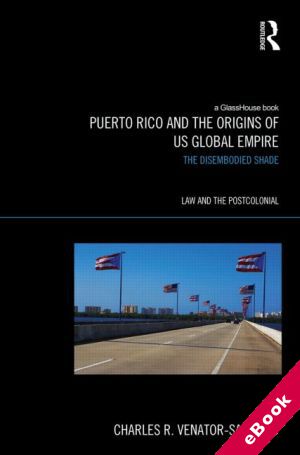
The device(s) you use to access the eBook content must be authorized with an Adobe ID before you download the product otherwise it will fail to register correctly.
For further information see https://www.wildy.com/ebook-formats
Once the order is confirmed an automated e-mail will be sent to you to allow you to download the eBook.
All eBooks are supplied firm sale and cannot be returned. If you believe there is a fault with your eBook then contact us on ebooks@wildy.com and we will help in resolving the issue. This does not affect your statutory rights.
Puerto Rico and the Origins of Global US Empire uses the case of Puerto Rico to analyze the development of two constitutive dimensions of the United States global Empire's legal framework. The U.S. global Empire's legal framework, this book argues, has consistently invoked authoritative interpretations of the U.S. Constitution to legitimate its power to ascribe an extraterritorial status to territorial spaces located within its sovereignty, and to ascribe a less than equal status to the subjects inhabiting these localities. United States global expansionism grew out of the inability of U.S. colonialist and imperialist traditions of territorial expansionism to adjust to the changing demands of a world increasingly ruled by global Empires.
During the 1890s, the United States embarked on a global campaign to acquire strategically situated islands/real estate across the globe in order to build permanent naval stations which could be governed without the traditional constitutional constraints or limitations established by colonialist precedents. Presently, advocates for U.S. global Empire draw on the precedents established to govern Puerto Rico, one of the key islands acquired by the United States amidst the Spanish-American War of 1898. More specifically, contemporary advocates of U.S. global Empire rely on the territorial and citizenship law and policy developed to govern Puerto Rico as a source of conceptual precedents. Puerto Rico and the Origins of U.S. Global Empire examines, for the first time the development of the legal foundations of the U.S. global Empire, revealing how it developed a new constitutional interpretation that has since been invoked to legitimate a wide array of global campaigns including the creation of torture and detention camps in Guantanamo Bay, Cuba, one of the last remaining unincorporated territories.